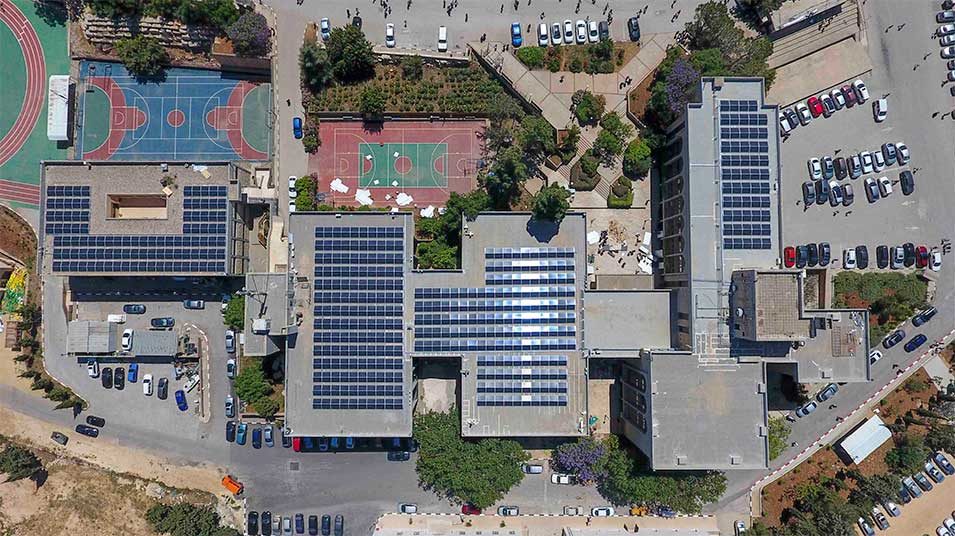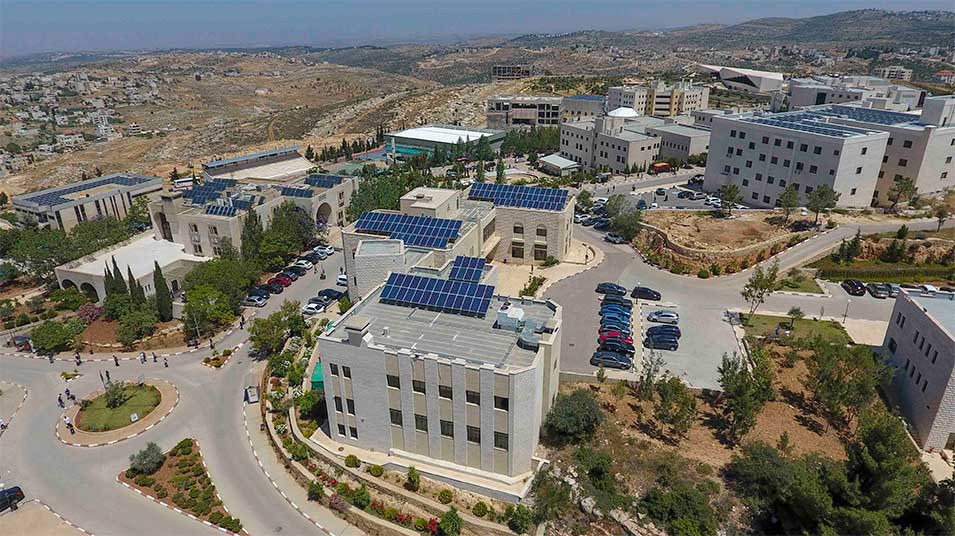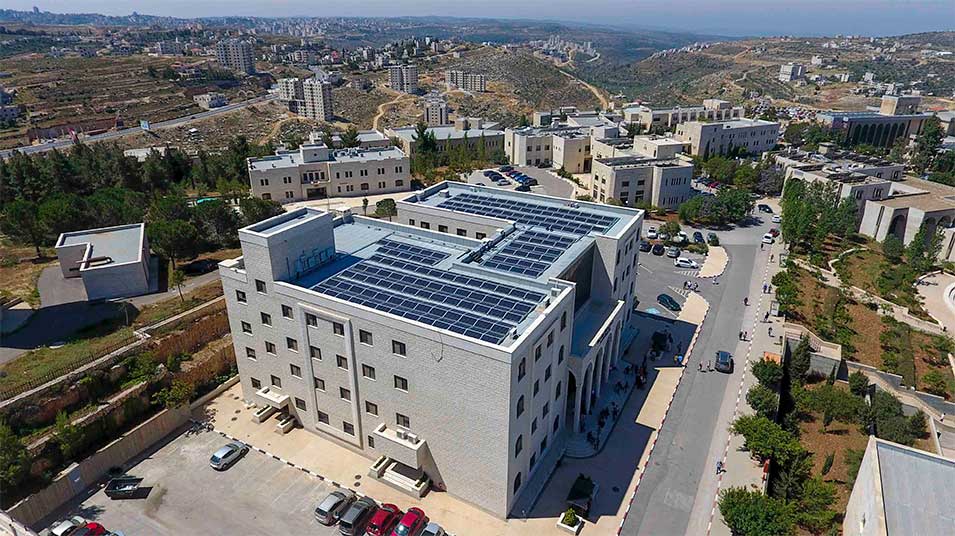Birzeit University reaches solar power milestone with new energy plant
Birzeit University has installed a 259 KW solar system on the rooftop of Omar Aggad Engineering Building, with a generous donation from the Arab Palestinian Investment Company (APIC). The university already has a 50 KW solar panel on the roof of Samih Darwazah Institute for Pharmaceutical Industries. The plan is to increase the university’s renewable energy capacity and dependence on renewable energy in the near future to face unprecedented global and local energy challenges.
Director of the Engineering Office at Birzeit University Bishara Abu Ghannam said that the idea started twenty-five years ago. “The university believed in the importance of developing real-world experience around renewable energy. Its early commitment helped ensure an innovative and efficient growth of this strategic notion. It has become motivated to seek out ways to address climate change.”
The implementation of the idea started with heating the water provided to Sheikh Rashid Bin Said Al-Maktoum Building using solar panels, and continued its efforts with the inauguration of a pilot project in 2013. The project, according to Abu Ghannam, represents the first power plant using solar panels in the university with a capacity of 50 KW, built on the rooftop of Samih Darwazah Institute for Pharmaceutical Industries.
In the past five years, renewable energy became part and parcel of the university’s strategic planning concerning energy sustainability, security and affordability. Solar panels are now installed on five roofs including: Samih Darwazah Institute for Pharmaceutical Industries, the annex of the Institute of Law Building, Omar Aggad Engineering Building, and the engineering workshops. This commitment helped in reducing the cost of the university’s electricity consumption by approximately $100,000per year.
The university’s continuous development will require more infrastructure and electricity consumption. The employee at the Advancement Office Mahmoud Al Masri explained that demand for energy is projected to double within the next few years. In order to meet this ever-growing demand, the university has turned to solar power systems to produce more energy at a lower cost, use energy far more efficiently, and improve the security of supply by relying more on domestic and stable sources.
“However, the ability to continue in installing solar panels relies on the ability of each building to have the panels installed”, Al Masri clarified. “For example, the Faculty of Pharmacy, Nursing and Health Professions Building and the annex of the Institute of Law Building are suitable for such projects because their rooftops are not occupied, like the Faculty of Science Building is.”
The logistics are not the only difficulty that can face the university while thinking strategically of renewable energy. Finding donors and funders is also a difficulty. Al Masri pointed to Omar Aggad’s donation that provided all the requirements of the Faculty of Engineering and Technology, and later the grant of his son Tareq to fund the solar energy project for the faculty. Al Masri gave other examples for funders such as the Representative of the Czech Republic, which supported the installation of solar panels on the roof of the annex of the Institute of Law Building.
Understanding these dynamics, in addition to the role of politics that govern sustainable energy systems is crucial for renewable energy approaches to succeed. At Birzeit University, work is underway to find means to overcome these hurdles for the university to take part in the green energy systems of the future.









